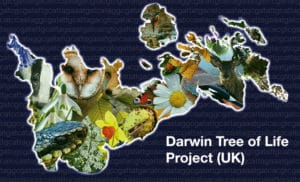 It’s one of the most ambitious sequencing projects ever attempted — the assembly of all 1.5 million known species of animals, plants, protozoa and fungi on Earth — and SMRT Sequencing will play a major part.
It’s one of the most ambitious sequencing projects ever attempted — the assembly of all 1.5 million known species of animals, plants, protozoa and fungi on Earth — and SMRT Sequencing will play a major part.
The global Earth BioGenome Project and its UK arm, the Darwin Tree of Life Project, were launched in London today in a gathering of the key scientific partners and funders from around the globe.
A greater understanding of Earth’s biodiversity and the responsible stewarding of its resources are among the most crucial scientific and social challenges of the new millennium, and overcoming these challenges requires new scientific knowledge of evolution and interactions among millions of the planet’s organisms, said Earth BioGenome Project Chair Professor Harris Lewin of the University of California, Davis.
“The Earth BioGenome Project can be viewed as the infrastructure for new biology,” Lewin added. “Having the roadmap, the blueprints for all living species of eukaryotes will be a tremendous resource for new discoveries, understanding the rules of life, how evolution works, new approaches for the conservation of rare and endangered species, and provide new resources for people in agricultural and medical fields.”
Headed by the Wellcome Sanger Institute, the Darwin Tree of Life Project will explore the genetic code of 66,000 species in the UK. The Natural History Museum in London, Royal Botanic Gardens, Kew, Earlham Institute, Edinburgh Genomics, University of Edinburgh, EMBL-EBI and others will collaborate in sample collection, DNA sequencing, assembling and annotating genomes, and storing the data.
SMRT Sequencing was previously used to decode the genomes of 25 UK species for the first time in a project to mark the 25th anniversary of the Wellcome Sanger Institute. The insights gained from the 25 Genomes Project form the basis for scaling up to sequence the genomes of 66,000 species.
“We are honored to be an integral part of the Darwin Tree of Life Project as it deploys the power of our sequencing technology on a much broader scale,” said our CSO, Jonas Korlach. “With the recent and ongoing improvements in our technology, we are well positioned to support the needs for scaling the sequencing and assembling of the genomes for the large number of species targeted by this project as well as the Earth BioGenome Project.”
November 1, 2018 | Biodiversity